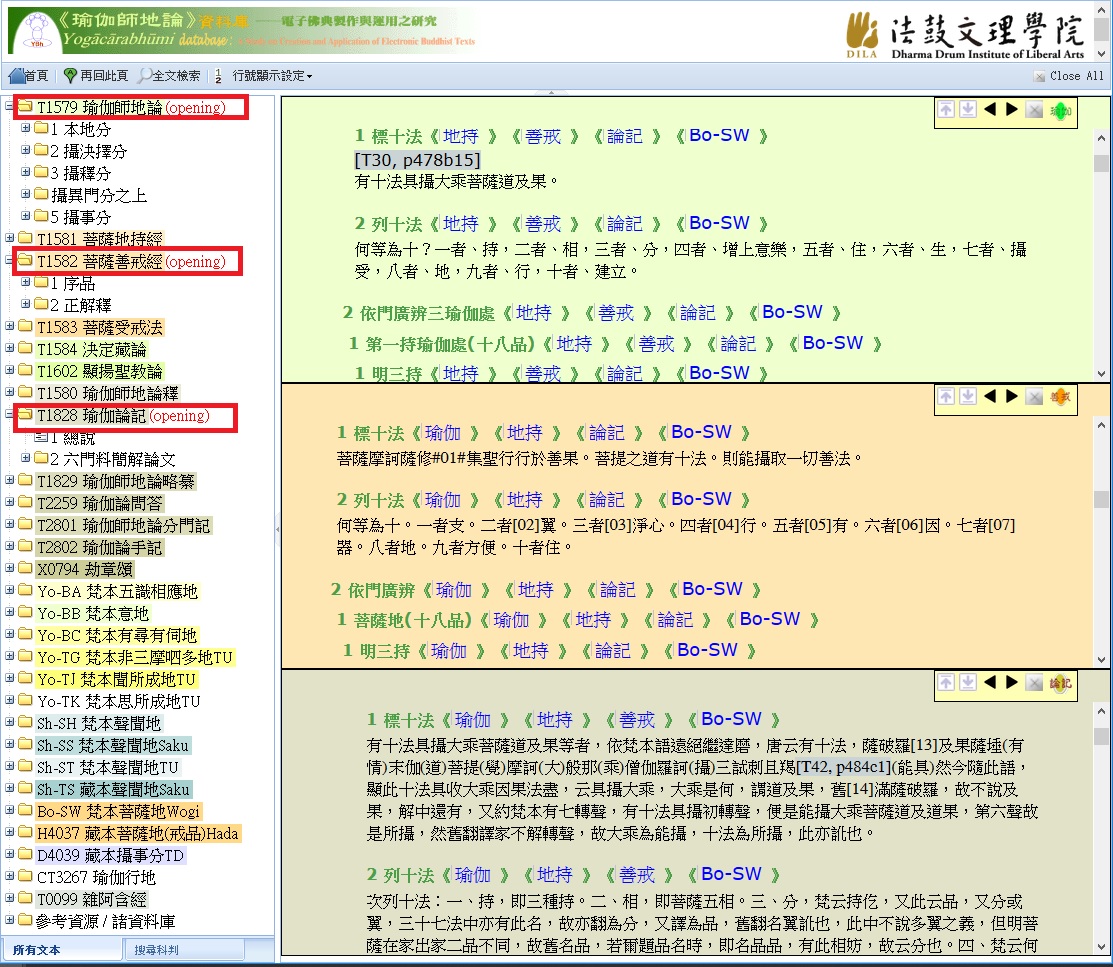Yogācārabhūmi Database:
A study on Creation and Application of Electronic Buddhist Texts
Obtaining a copy of the Yogācārabhūmi, the source of the Indian Yogācāra and Chinese Faxiang schools, was the reason behind Xuanzang’s journey to the West. It is an encyclopedic description of the stages and states of cultivation of a yoga (meditation) practitioner.
This database uses the TEI tag sets to mark up the electronic data of the Yogācārabhūmi, including different Chinese translations, commentaries, Sanskrit originals, Tibetan translations, etc. Its structural features are marked up for cross-reference to facilitate comparison of parallel texts.
Content Description
Please consult the Abbreviations and Symbols.
Interface Functions
This database includes functions such as “Parallel Texts Interface”, “Full-text Search”, “Title Interpretation”, "Download" and “Cite and Copy” etc.
Collation Principles
For a description of the collation principles used for this database, please consult the CBETA Documentation Editing Manual.

This database was funded by the National Science and Technology Council from August 1, 1999 to July 31, 2002. Since 2016, it has been maintained and expanded through designated funds donated by Mr. Zhengnan Lin.